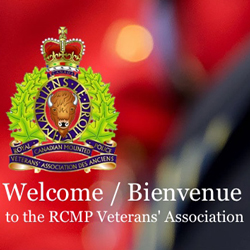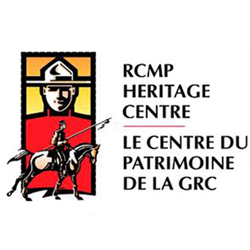NWMP: Officer Performance Reviews
In a letter to the Right Honourable Minister of the Interior in Ottawa dated November 17, 1880, Commissioner Acheson Gosford Irvine provided his assessment of performance evaluation of North West Mounted Police Officers under his command.
His letter and comments are included below:
Sir,
I have the honour to acknowledge the receipt of Mr. White’s telegram of the 8th instant in which I am instructed to provide you with a confidential report on the officers of the Force.
I now have the honour to comply with your instructions and enclose herewith the confidential report asked for.
In each case what i have reported is the result of most careful consideration, and I believe that the conclusions I have arrived at will be found reliable and accurate.
I consider that it is a matter very much to be regretted that (at the time of ?) the organization of the Froce that steps were not taken which would have resulted in the proper instruction of officers. Many were placed in positions of independent command with but a very superficial knowledge of their duties. I need hardly point out the evil results that have followed.
I shall always employ every means in my power to instruct officers in all branches of their duty. And I have every reason to hope that by doing so I shall establish an “Esprit-de-Corps” that has not heretofore existed.
In appointing officers to this force I consider that in many cases the selections have not been made from a class of men likely to establish that prestige necessary to a force the Military organization of which should be perfect and the example set exemplary.
Sir
Your Obt. Servant
A.G. Irvine
Commr.
Superintendent James Morrow Walsh (age 40)
Has a certain amount of natural ability, “sharpness” would perhaps be a better word. Might have made a very fair officer had he been kept at Head Quarters under strict supervision before being sent to an independent command. Is prone to act on his own authority in a manner that cannot be considered subordinate, with a view of making his own name conspicuous.
I do not consider him particularly straightforward. i have little confidence in him.
NOTE: Left the Force between 1883 to 1897. Re-engaged in 1897 and left July 5, 1899.

Superintendent Percy Reginald Neale
Have always found him a most efficient and hard working officer. Has had considerable experience in the Quarter Master Branch. Some years ago I found the Quarter Master’s Department at Fort Walsh kept in a very slack manner, during the time Supt. Walsh was in command. On ascertaining this I placed Inspector Neale in charge and the manner in which this office changed the system for the better reflects greatly to his credit. he has been for some time employed in the Department in Ottawa. I have no doubt a favourable opportunity has been offered to judge of his ability.
NOTE: Distinguished himself in saving the fields guns prior to the Cut Knife Hill battle in 2885. Resigned in debt in 1890.
Superintendent Leif Newry Crozier (age 34)
A tremendously hardworking and good officer. He has profited much by his experience in the North West Mounted Police. And by diligent application has become a very efficient officer. He takes a praiseworthy and conscientious interest in his work. Where holding responsible command has shown considerable tack and ability. The utmost confidence can safely be place in him.
NOTE: Retired as Assistant Commissioner on July 30, 1886.

Superintendent James Walker (age 34)
This officer has never served directly under me. But from an inspection of his Post last year I was by no means favourably impressed. I am quite satisfied that his administrative ability or knowledge of discipline is not great. Is very indifferently educated. He is I understand a good practical farmer.
NOTE: Left the Force on February 1, 1881 and moved to southern Alberta to open a mill to provide railway ties and bridge supports for the CPR. He was one of the original members of the NWMP Veterans’ Association.
Inspector Sam Steele (age 29)
I consider a fair officer, has but a moderate amount of natural ability. Is somewhat slow in the performance of his duties. Has but little experience as regards command.
NOTE: Went on to take a leadership role in the Yukon during the Klonkide Gold Rush. During the Boer War, he was the Commanding Officer for the Lord Strathcona Horse Regiment. Retired from the Force on March 1, 1903. In World War I, he rose to the rank of Major General.
Superintendent William D. Jarvis (age 44)
An officer who has had service in the regular Army. I have never had this officer serving under me. But cannot say I have much confidence in his judgement or that I consider him a goo disciplinarian. Is somewhat unsteady in his habits.
NOTE: He was discharged from the Force on June 15, 1881 by the Fred White (NWMP Comptroller) for gross insubordination.
Superintendent William Winder
This officer takes little interest in his work and does not appear to like the service. As an instance. he was ordered from Fort Macleod to the post and was here for some two months during the past summer. While here he was posted to A Troop, the command of which he never took over, showing the utmost disregard as to its well being and efficiency.
A great portion of this time is devoted to outside speculation. He knows nothing whatever of discipline. Suffers greatly from ‘piles’ and is unfit to perform the duties to which officers of the Force are often subject.
NOTE: Retired on November 6, 1885 and set the Winder Ranch Company in southwest Alberta.
Superintendent William H. Herchmer (age 36)
Has a thorough knowledge of discipline, taking much interest in his work and always has his Post in good order. I consider him a good officer in many respects, he is however somewhat lacking in tact and administrative ability otherwise I have confidence in him. Has not alway been particularly steady in his habits.
NOTE: Distinguished himself at the Cut Knife Creek battle during the North West Rebellion by leading 319 men into battle. When his brother became Commissioner, he was promoted to Assistant Commissioner against the objections of other officers. Died on January 1, 1892.
Inspector Albert Shurtliff (age 38)
This officer served under me at Fort Macleod, I always found him hardworking & trustworthy. I have every confidence in his integrity. His manner with men is not particularly good nor is his knowledge or experience great.
NOTE: Retired in 1883 because of chronic pulmonary disease. Died on October 29, 1885.
Inspector Severe Gagnon
I have seen very little of this officer. He appears to have performed his duties satisfactory at Edmonton. He is a lawyer. Doubtless I shall soon be in a position to judge of this officer’s ability and usefulness, if so, I shall lose no time in forwarding a more detailed report.
NOTE: Promoted to Superintendent and commanded Fort Carlton during the North West Rebellion. Retired with health problems on February 31, 1901 and passed away 8 years later.
Inspector Arthur Griesbach (age 41)
I know really nothing of this officer.
NOTE:He was the Commander of Fort Saskatchewan between 1883 to 1901. In 1886, he experienced the first mutiny in the Force. Mandatory retirement on November 21, 1916.
Inspector Jack French
Is an officer who I believe does his best towards the satisfactory performance of his duty. I cannot say I have much confidence in his judgement. His manner with men is bad. he is very indifferently educated. His knowledge of discipline is not great.
NOTE: He left the Force in 1883. During the North West Rebellion, he organized and led “French’s Scouts.” He was killed in action at Batoche on May 12, 1885.
Inspector John Henry Mcllree (age 31)
I consider making of a good officer. I have every confidence in his integrity. I cannot however say that I consider him particularly energetic. Is I understand a graduate of the Royal Military College Sandhurst, England. Is well educated.
NOTE: In 1897, he lead a contingent from Regina to coordinate the final takedown of “Almighty Voice.” John retired on March 1, 1911 at the rank of Assistant Commissioner.
Inspector Jack Cecil Edward Denny (Age 30)
Is a hard working, energetic and trustworthy officer. His nature ability however is not great. Is somewhat ‘boyish’ in manner and habits. he is not particularly well educated.
NOTE: Retired from the Force on June 6, 1881. Later became Sir Denny and the Baronet Ireland.
Inspector Denny William Antrobus
Has sufficient ability to carry out his duties satisfactorily and has in many cases done so. He is not steady in his habits and I cannot say that I have entire confidence in him. He speaks French.
NOTE: On July 10, 1886, he was promoted to Superintendent but was demoted to Inspector on April 7, 1891 for being drunk in a public place.
Inspector Francis Dickens
I consider this officer unfit for the Force. He is lazy and takes no interest whatever in his work. he is unsteady in his habits. I am of the opinion that his brain is slightly affected.
NOTE: Received a medical discharge on June 11, 1886 and died two months later.
Inspector Thomas Dowling
Served under me here for some time. I consider him too old for active work on the prairie, so I transferred him to Fort Macleod as Acting Quarter Master. As far as I know he has performed these duties very satisfactorily. Has had no experience as regards command.
NOTE: Retired from the Force on March 31, 1886 and died three years later.
Inspector Modeste Edmund Frechette
This officer does not take what i consider a true interest in his work. Has no fitness for command. His knowledge of discipline and administration is not great.
I have no faith in his judgement. Hs suffered from ‘fistula’ and is unfit to undertake any hard duty which necessitates constant riding. Speaks french and English fluently.
NOTE: In 1885, he was invalided from the Force on November 1, 1882 and died in October 1885.
Inspector Alexander Roderick McDonnell (age 40)
Has been a very useful officer on the prairie and the duties he has been called upon to do he has performed most efficiently. he is somewhat old, but of strong and powerful build. His knowledge of discipline is not great. I have little faith in his judgement.
NOTE: Rose to the rank of Superintendent and retired on May 1, 1895.
Inspector John Cotton (age 27)
Is an active intelligent and well educated officer. he hold a first class ‘Long Course’ certificate from the Royal School of Cunnery, Kingston, also first class certificated from Cavalry & Infantry Schools. Is well up in interior economy, drill & discipline. Takes a great interest in his work, in fact I may say he is a ‘born soldier.’ I have the greatest confidence in him He speaks French. he is a valuable officer to the Police Force.
NOTE: Was promoted to the rank of Superintendent and retired on May 7, 1899.
Surgeon John George Kittson (age 36)
As I understand, he is a clever surgeon. Kind and most attentive. Speaks French and is very much liked by the Indians and Half Breeds. I regret to say that he is very unsteady in his habits.
NOTE: he resigned on January 24, 11882 and went into private practise in St. Paul Minnesota where he died two years later.
Surgeon Rober Miller
I have not had much opportunity of judging this officer’s character. But the little I know of him I was by no means favourably impressed.
NOTE: During the North West Rebellion, he was at Fort Carlton and was at the Battle of Duck Lake. Died on September 6, 1887.
Surgeon George Alexander Kennedy (age 22)
Is I understand and believe a very lever young surgeon. takes a sincere interest in his work and is most kind and attentive. Has a fair knowledge of French.
Before this officer worked under me I was informed that he was of unsteady habits, I do not however credit this, I have always found him just the reverse, and at all times fit to perform his professional duties.
NOTE: Left the Force on June 30, 1887 to become the President of the College of Physicians. In 1897, he was named to a member of the Senate of the University of Alberta.

Photograph of NWMP Officers (Source of photo – RCMP Historical Collections Unit – “Depot” Division).
The above details were forwarded to us by Veteran Bob McKee – History Director for the Vancouver Division – RCMP Veterans’ Association.


 December 8, 2014
December 8, 2014 

























